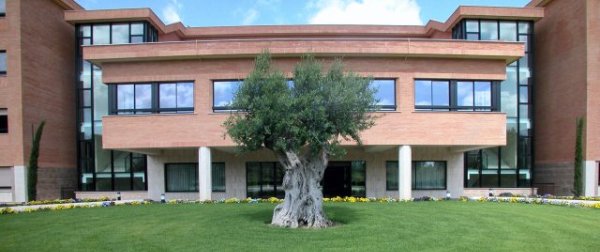
The President of the Pontifical Council for the Family, Msgr. Vincenzo Paglia, delivered, on Tuesday, July 2nd, the inaugural lecture of the Summer Course on “Bioethics at the Crossroads of Faith, Reason and Science” (1-12 July) at the Pontifical Athenaeum Regina Apostolorum. This lecture was entitled: “The Year of Faith and Bioethics.”
«Among the many suggestions raised by the topic − the President of our Dicastery said −, I would like to evoke first of all the one linked to the extraordinary event of the Second Vatican Council», which was «a sort of “compass” for the new Millennium (according to John Paul II’s description) for both the Church and contemporary society, for the so-called post-secular world, constantly characterized bioethical debate, which often turns into a bio-political confrontation according to the witty interpretation of Foucault».
The key issues of the Bioethics of life, says Msgr. Paglia, already existed before the term “bioethics” was used for the first time by Van Rensselaer Potter, in 1970. The debate on the issues concerning bioethics came to a turning point, in the Christian perspective, with the Pastoral Constitution Gaudium et Spes, which deals with «issues affecting the modern world», such as science and culture, marriage and the family, the social order, work, the economy and peace, while placing the human being, the person at the heart and foundation of every discussion. «It is man, therefore, but the whole man, with the unity of his body and soul, heart and conscience, mind and will,” who constitutes the cornerstone». Man’s dignity «derives from God and is founded in Jesus Christ», in «a unitary anthropology that sees man not as an isolated monad, but as a ‘dialogical being’ in relationship with God and with his fellowmen», as was reaffirmed in the Declaration Dignitatis Humanae.
The friendly dialogue of the Church with the contemporary world soon encounters obstacles, especially, in the concept of marriage and the family, as the Encyclical Humanae Vitae attests. «The publication of the so-called ‘encyclical of the pill’ brings to light, suddenly and violently, all the major changes in the symbolic codes of conduct and morality that have been occurring over the preceding two decades, in all Western societies». And so, «secularization progressively invested not only the religious sphere but also the public morals and all the most important political cultures nineteenth and twentieth centuries», in «a process of ‘disenchantment of the world», which leads to the assertion of «a culture increasingly focused on individualistic accomplishment».
At the same time, «a techno-scientific ideology that presents the characteristics of strong nihilistic tendencies», is progressively gaining popularity; a sort of “scientific existentialism” that frequently takes the form of «an uncritical fideism vis-à-vis the technical-scientific knowledge, often combined with religious indifference, when it’s not in fact tenacious opposition to faith in the name of rationality». A kind of devotion to science is spreading that is presented as an exaltation of rationality, and is powered by alleged technical “achievements.” “Artificial insemination,” for example, questions the natural relationship between parents and children as well as the rapport between father and mother, and it seems to be preparing the New World described by Aldous Huxley, in which «human reproduction, which occurs ‘in series’ according to the of model Ford, is completely extra-uterine and the embryos are produced and made to develop in special factories».There is, in short, a social propensity to what Jacques Ellul defines as a “slip of judgment”: «the typical tendency of technologized societies to always accept technical innovations uncritically, although, at first, they are the object of general condemnation», in a «polytheism of moral perspectives», which includes the relativism of sexual identity in the theory of “gender,” while the family becomes the object of attack because it is seen as an instrument of coercion and repression that inhibits the individual. The “extreme moment” of this critical deconstruction and fragmentation of the family is represented by the book of the British psychiatrist David Cooper: The Death of the Family.
This is the cultural background in which the Church today is called to carry out its mission of evangelization, the proclamation and defense of «the family sanctified by Christianity, as society’s basic cell, where love and solidarity establish themselves among the different generations that compose it». There is need for «a “new humanism” − Msgr. Paglia reaffirms −which would allow the construction of a new meeting point between secularists and believers, and that irrevocably leads to the relationship of free and unilateral love, between God and man». And the Year of Faith, which ends November 24th, 2013, with the Solemnity of Christ the King, reemphasizes this encounter of love in the history of mankind.